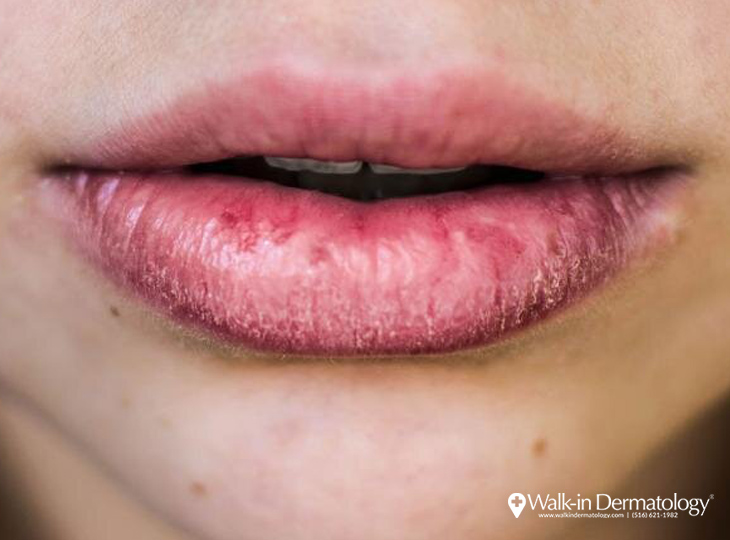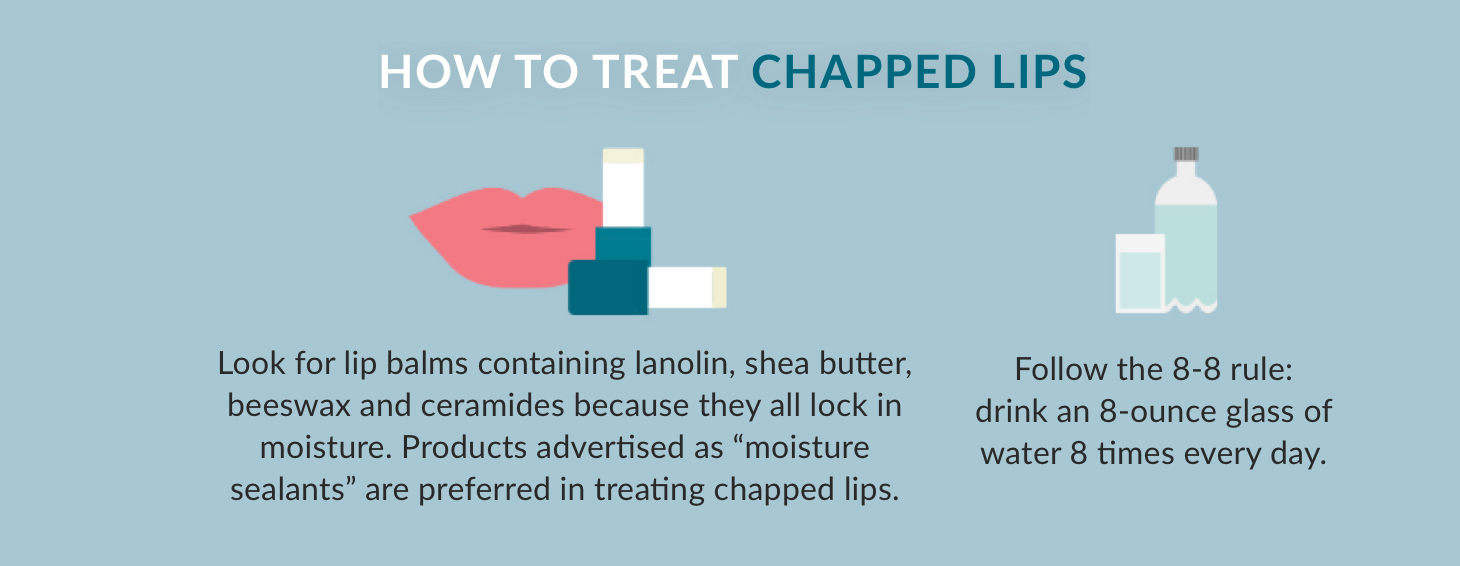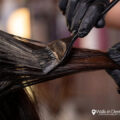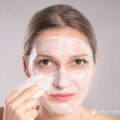Tues: 8:30am - 3:00pm
Wed: 12:00pm - 6:00pm
Thurs: 8:30am - 3:00pm
Fri: Closed
Sat: 8:30am - 12:30pm
Sun: Closed
Greenvale, NY 11548
Why are my Lips Always Chapped?


‘Tis the season for chapped lips. So what causes this irritating and sometimes painful condition?
Cold, wind, and lousy winter weather are all contributing factors. And during the summer months, frequent sun exposure is often to blame.
This time of year, dry winter weather can damage sensitive, exposed mucous membranes. Cold air and little humidity can cause your lips to crack and peel. The instinctive response is to lick your lips. Don’t! That just sets off a vicious cycle.
Licking your lips only worsens the problem and can cause skin to peel and crack faster when it’s cold outside. That’s because saliva is acidic and actually works to dry out your lips, so when you lick them you’re only speeding up the process that leads to chapped lips.
Some supplements and medications have also been shown to cause lip chapping. These include:
- Vitamin A
- Retinoids (rich in Vitamin A, these medicines are often used to treat acne)
- Lithium (a common treatment for bipolar disorder)
- Chemotherapy drugs
When your lips are chapped and cracked, the natural tendency is to reach for a tube of lip balm, but before you do, check the ingredients.
Some lip balms contain ingredients that can irritate or dry out your skin. Menthol, salicylic acid, cinnamic aldehyde and balms with flavoring can all cause lips to become dry. If you have sensitive skin or allergies, you may be at even greater risk of getting chapped lips when using these products.
While chapped lips can be irritating and sometimes painful, especially if the skin begins to crack and bleed, the condition is typically not dangerous.
In severe cases, patients can develop what is called cheilitis, or lip inflammation. This is a condition that presents itself as red, dry, scaling, and itchy lips. You may notice cracked skin at the corners of your mouth as well as across your lips.
Other symptoms include dark, reddish-colored lips, white plaque on the surface and even ulcers. Your lips may feel lumpy to the touch.
Cheilitis is linked to infections and inflammatory illnesses, including Crohn’s disease. A patient suffering from cheilitis may require treatment with anti-inflammatory drugs or antibiotics.
Dental trauma, including missing teeth, can cause excess saliva production that transforms chapped lips into cheilitis. This happens when bacteria enter the cracked skin on the lips and trigger an infection.
Treatments You Can Try for Chapped Lips
Look for lip balms containing lanolin, shea butter, beeswax and ceramides because they all lock in moisture. Products advertised as “moisture sealants” are preferred in treating chapped lips.
The best times to apply lip balm are right before you go outdoors and at night before bed, when the product has more time to work.
At home, keep a humidifier running. Moisture in the air is good for your lips. Drinking the recommended amount of water every day keeps you hydrated – and that helps your skin. Follow the 8-8 rule: drink an 8-ounce glass of water 8 times every day. It’s easy to remember.
Persistent lip dryness can also be a sign of a deficiency in Vitamins B and C, iron, zinc or folic acid. Multi-vitamin supplements may help.


What to Avoid
If you have a persistent problem with chapped lips, stay away from products containing strong fragrances, camphor, eucalyptus, citrus, menthol, mint, cinnamon or other flavors, as these may cause further irritation.
Avoid shiny glosses and oil-based products as dermatologists suspect these ingredients intensify damage from the sun’s ultraviolet rays. Glosses and oil-based products work like a magnifying glass to increase the sun’s rays on your lips. Some lip balms contain white petrolatum, which is a byproduct of petroleum oil. This can make chapped lips worse by irritating the skin.
Above all, don’t pick at dry, peeling skin on your lips. Chances are you’ll make it worse, cause more pain and possibly bleeding. It will only take longer for your lips to heal. Instead, try a gentle scrub or use a washcloth and warm water to buff your chapped lips in a gentle circular motion to loosen and remove peeling skin. Finish with an application of the right type of lip balm.
Let Walk-in Dermatology Treat Your Chapped Lips
If you’re concerned about persistent chapped lips or any other skin condition, there’s no need to worry silently. Our team of board-certified dermatologists and experienced medical staff will address your concerns and provide the necessary treatment for all your skin conditions. You can also schedule an appointment with us for chapped lip treatment. If your lips are painful, bleeding, don’t seem to heal or show unusual discoloration, contact us immediately. Walk-in Dermatology can help.
If you can’t make it to one of our offices, we can set up a Video Visit and even prescribe medications remotely. The bottom line? Don’t wait, contact us today.








